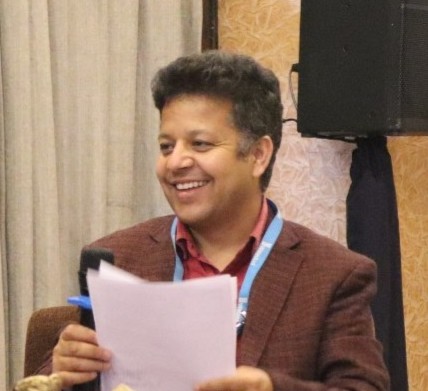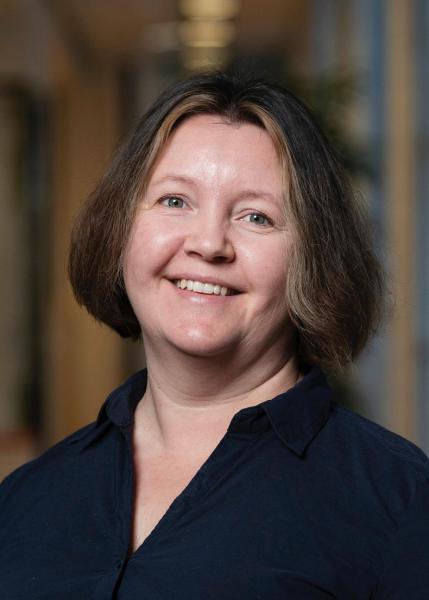समाचार
Godawari Prabalya WASH : Beyond Partnership and Collaboration
Article

 The travel brings immense pleasure, and creates opportunities for collaboration, partnership, and friendship. During travel, having casual conversations among peers, friends, or colleagues can lead to life-changing ideas for society—and even, in rare cases, lifelong partnerships. A similar spark was lit when VAKIN’s former CEO, Tomas Blomqvist, and WaterAid UK’s staff member Rob Fuller were traveling during the International Water Association (IWA) conference in Japan. They were discussing global drinking water and sanitation issues, which led to the idea of collaboration and partnership to promote safely managed drinking water, sanitation, and solid waste management.
The travel brings immense pleasure, and creates opportunities for collaboration, partnership, and friendship. During travel, having casual conversations among peers, friends, or colleagues can lead to life-changing ideas for society—and even, in rare cases, lifelong partnerships. A similar spark was lit when VAKIN’s former CEO, Tomas Blomqvist, and WaterAid UK’s staff member Rob Fuller were traveling during the International Water Association (IWA) conference in Japan. They were discussing global drinking water and sanitation issues, which led to the idea of collaboration and partnership to promote safely managed drinking water, sanitation, and solid waste management.
This idea began to materialize when UN-Habitat, through the Global Water Operators’ Partnerships Alliance (GWOPA), published a call encouraging mentorship. The travel-born idea became a reality when VAKIN agreed to apply to GWOPA.
The seed of the partnership idea began to germinate when GWOPA selected the proposal submitted by VAKIN, WaterAid Nepal, and Godawari Municipality—to strengthen the institutional Water, Sanitation, Hygiene, and Solid Waste Management of Godawari Municipality. This partnership was formalized through a Memorandum of Understanding (MoU) between the three partners on July 1st, 2022.
One partner—VAKIN, based in northern Sweden—possesses high-level technologies and a skilled staff. It serves a population of 140,000 through 17 waterworks, 1,800 km of water pipes, more than 15 reservoirs, 8,300 septic tanks, 24 wastewater treatment plants (including one using biodigestion for electricity), over 50,000 solid waste bins, and five waste management sites. The other partner—Godawari Municipality, in the southern Kathmandu Valley—serves around 150,000 people, many of whom rely on unprotected water sources and face staffing limitations. Meanwhile, WaterAid Nepal, with long and vast experience working with various government levels, was already implementing the Beacon Project in Lahan with Anglian Water based in the UK. Each partner brings unique strengths and identity, yet all are driven by a shared commitment to improving drinking water and sanitation.
This unique partnership included a Project Steering Group (PSG) consisting of the Mayor, WaterAid Nepal’s Country Director, VAKIN’s CEO, and key WaterAid UK staff to provide strategic guidance and leadership. A Project Management Team (PMT), with focal persons from all three partners, coordinated the work. Eight dedicated workflows were designed to steer the project.
The project aimed to strengthen WASH institutional capacity in Godawari Municipality through eight thematic workflows. The partnership emphasized peer-to-peer learning and knowledge exchange, leveraging VAKIN’s expertise to support Godawari Municipality. The partnership supported the establishment of digital WASH data in Godawari Municipality through a WASH inventory and master plan.
The partnership’s name—Godawari Prabalya WASH—was selected through a team poll. “Prabalya” symbolizes strength through unity, reflecting the synergy achieved through this collaboration.
The VAKIN team first visited Nepal in October 2022, led by the VAKIN Chief Executive Officer. This trip included wider-level consultations, community meetings, site observations, and workflow meetings. The project launching ceremony was organized with the high-level presence of dignitaries, including the European Union Delegation, VAKIN CEO, WaterAid Regional Director, and Godawari Municipality’s Mayor. This initial visit was foundational in developing mutual understanding and detailed action planning for each workflow. Over shared meals and open conversations, the teams bonded both professionally and personally. VAKIN team members returned to Sweden with strong impressions and fresh ideas to support WASH improvements in Godawari.
In 2023, the Nepal team visited Sweden, led by Godawari’s Mayor and WaterAid Nepal’s Country Director. The visit included meaningful exchanges at the Swedish International Development Cooperation Agency (SIDA), Sweden Water Association, and WaterAid Sweden. In Umeå Municipality, the team observed best practices in solid waste management, municipal services, drinking water, and faecal sludge treatment. The team also visited many communities and areas where VAKIN is tapping water sources. Beyond technical exposure, the Nepal team was deeply moved by the professional culture at VAKIN, especially the respectful dynamics between junior and senior staff. A farewell dinner hosted by Elin Backman at her home for outgoing manager Matthias Grimm—who possessed profound knowledge of WASH—became a cherished memory. His farewell brought tears, symbolizing the deep emotional connections forged during the partnership.
In April 2024, the VAKIN team second time come to Nepal to review project progress. Nearly two years in, significant improvements were visible: the Godawari WASH Plan and WASH Act were developed, draft Feacal Sludge Treatment Plan designs finalized, and notable progress made to the Lele water supply scheme. There was close interaction and relationship between VAKIN team and Lele water and sanitation users committee members. A family dinner hosted by the Nepali team further solidified bonds, allowing team members and their families to connect personally and emotionally beyond the project.
Throughout, VAKIN consistently supported Godawari Municipality—responding promptly, offering guidance, and fostering an enabling environment. Godawari Municipality reciprocated with strong cooperation and budget allocations, reinforcing their commitment. This mutual respect made the partnership smooth and effective.
VAKIN’s third and final visit to Nepal took place from May 19–24, 2025. Together, we celebrated our achievements, reflected on ongoing and remaining work, and organized 20 events during the short visit.
While some might question how two very different institutions—one with advanced technologies and infrastructure in Sweden, the other a resource-constrained, newly formed municipality in Nepal—could work together, our answer lies in shared humanity. Despite the differences, we found common ground in empathy, commitment to safe water and sanitation, and mutual respect.
As VAKIN project manager Elin Backman wisely said, “There are no competitors in the WASH sector—only complements.” This philosophy guided us. During a 2024 visit, Elin’s emotional reaction to the working conditions of sanitation workers in Godawari sparked new initiatives. She made a strong personal commitment to support the health and safety of sanitation workers, which, within the year, resulted in visible improvements in the segregation centre and in the wellbeing of sanitation workers.
Altogether, the project conducted more than 130 events, including training, workshops, meetings, and exposure visits; provided technical support to the Lele Water Supply Scheme for providing safe drinking water to 750 households through one house–one tap; and developed six key WASH-related documents to guide Godawari Municipality toward universal WASH coverage.
Despite vast differences in technology, context, and geography, what united us was our empathy and strong commitment to improve the water and sanitation situation of communities. These human connections became the foundation of our successful collaboration.
Though the project officially ended on June 30, 2025, reporting will continue until November. While it’s hard to say goodbye, we prefer to say: “See you again.”
Godawari Prabalya WASH was more than a project—it marked a turning point. As Godawari Municipality took its initial steps in WASH development, this partnership became a symbol of hope, dignity, and shared commitment. It reminded us that clean water and sanitation are not luxuries, but fundamental rights. This journey touched lives, built trust, and left a lasting impact.
Two key staff members—Mr. Matthias Grimm from VAKIN and Ms. Jeanne Cole from WaterAid UK—laid the foundation of this project, from proposal development to the initial steps of execution and guidance. Though they have moved on, their contributions remain visible in Godawari. They left not only a professional legacy but a deep impression on our hearts.
There are too many examples in the world of activities that pollute our essential resource: good quality drinking water. In this collaboration, all individuals, team members, partner organizations, experts, and decision-makers have worked together for a common goal: safe water and a sustainable society. This brings hope for the future.
Though we came from different countries, cultures, and backgrounds, we were united by shared humanity and a deep commitment to serve. Beyond partnership and collaboration, we exchanged thoughts, feelings, and values—creating a bond that transcended project boundaries and left a lasting impact on the communities we touched.
(Mr. Anand Gautam -WOP Coordinator from WaterAid Nepal-Anand Gautam | LinkedIn and Ms. Elin Backman- Manager of VAKIN for Godawari Prabalya WASH-Elin Bäckman | LinkedIn)